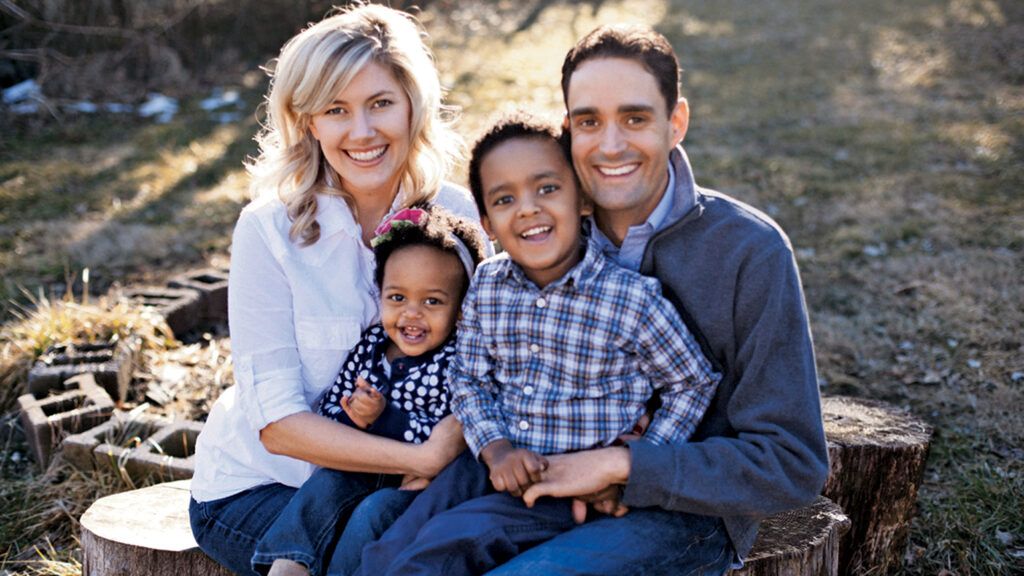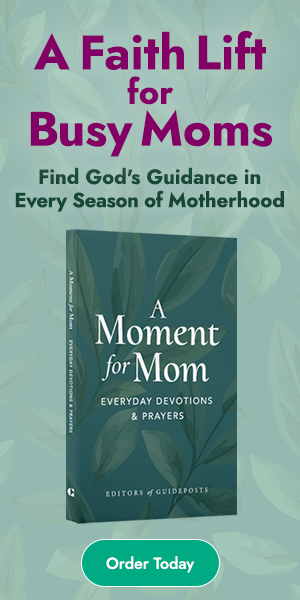So many people are lonely these days. Thanks to technology, we live in an increasingly interconnected world, but it sure doesn’t feel that way. Forty percent of Americans report that their social relationships are “not meaningful.” One fifth of people say they’re “lonely or socially isolated.” Nearly a third of older adults live alone.
Loneliness is a physical as well as a mental health problem. Research links prolonged social isolation to higher risks for high blood pressure, heart disease, obesity, a weakened immune system, anxiety, depression, cognitive decline, Alzheimer’s disease and even death.
I don’t mean to frighten you. But I think it’s important to recognize the costs of our individualistic, on-the-go, screen-hypnotized culture. I speak from personal experience. I’m married to a wonderful husband who works as a chaplain at a military college. We have two children, and we live in a medium-size town where everybody knows everybody else’s business. Yet I’ve spent long periods of my life feeling lonely.
Growing up in a Navy family presented unique social challenges. I moved three times during my three years in middle school, a social agony that still lingers. I was lonely through two miscarriages and an infertility diagnosis. And I was lonely as a young mom trying my best to be what I thought a good chaplain’s wife should be at my husband’s college chapel. That pretty much meant me in the foyer shushing the kids while church happened in the sanctuary.
I’ve thought a lot about loneliness over the years. I’ve written about it too: online and in my most recent book, Loving Well in a Broken World. While periods of loneliness are inevitable, they don’t have to be permanent. Overcoming loneliness is hard, but it can be done. It takes courage, perseverance and empathy. That last quality, putting yourself in someone else’s shoes, might be the most important. It’s definitely part of seeing the world through God’s eyes, not just your own.
Even people who seem totally put together feel insecure and lonely sometimes. Realizing that made it a lot easier for me to reach out and make social connections. Here are some strategies that have worked for me. I hope they help you too.
1. Join a faith community.
You’d think this would be a no-brainer for me. I’m married to a chaplain!
My husband, John, began serving as a chaplain for the Virginia Military Institute six years ago. At the time, our children were just three and one and a half. It was one of the loneliest times of my life.
I wanted to be a good mom and a supportive chaplain’s wife. But most of the worshippers at the chapel were college students. There were no little kids, no parents my age, no child care. I was too busy minding the kids to participate in worship. John was busy with ministry events many evenings, so attending an evening Bible study for female cadets felt too overwhelming for our family.
I felt so isolated after a year and a half that I told John something had to change. He supported my desire to find a church where I could connect with the community. I tried a congregation in town and was overwhelmed with relief to discover that it had child care during the adult Sunday School class. I got myself a cup of coffee and sat at the back, watching the room fill with people of all ages, including young parents like me. I had to stop myself from crying.
The thing to remember when you’re new at a faith community is that longtime members are eager to welcome newcomers because newcomers aren’t plentiful these days. And other newcomers are just as shy and nervous as you are. Make the effort to introduce yourself to people. Attend a class. Chat with other parents or grandparents if you have kids or grandkids.
You already have something in common—your faith. God has brought you all there for a reason. As you meet people and connect on the things that matter, you will form relationships that sustain you through life’s best and worst.
2. Make one or two close friends.
Spend too much time on social media, and you can start to feel as if your own social life is pretty dull. The reality is, everyone feels that way. Guess what? You don’t need a glittering social life to feel emotionally fulfilled. I’ve found I’m happiest when I make one or two close friends. That’s all I need, and maybe it’s all you need too.
I first learned this about myself when I was in middle school. Starting at a new school every year was excruciating. Other kids had known each other all their lives. How could I break in? I couldn’t. At least not at first. But I could meet just one person and maybe become friends.
I faced the same situation when John and I moved so he could attend seminary. John worked as a part-time youth pastor, and I joined him for a youth group outing to a minor league baseball game. I was chatting with another parent chaperone named Sarah when she suddenly asked, “Do you like to do crafts?”
That was so brave of her because I could have frowned and said, “No, not really.” But I love crafting and told her so. Sarah ended up becoming my closest friend while John was in school. I met other people during that time, but Sarah was the person I confided in. Having just one friend like that made all the difference.
3. Don’t be afraid to open up.
John and I struggled for many years to have children. Multiple miscarriages followed by a diagnosis of infertility dealt a traumatic blow to my sense of self as a woman. I told myself I needed to put on a brave face and get over it. I sat through many baby showers, masking my despair.
That was the wrong decision. I’m not saying I should have ruined other people’s celebrations by obsessing over my setbacks. But I should have confided in friends and family that I was hurting. I should have reached out to ask for support. Years later, reading a blog post I wrote about that painful time, my mom said to me, “Lauren, why didn’t you tell me how hard it was for you? I had no idea.”
Isolation is an instinctive defensive reaction to pain. I feared other people would think I wasn’t trusting God because I was experiencing such deep grief. Just pray harder, I told myself. In fact, people who are hurting need more social connection, not less. Friends are honored, not burdened, when you share deep pain. It can be especially healing to ask someone to pray with you.
If you need more help, ask for it. A support group can be an excellent place to connect with people and learn about professional resources. Remember that everyone is hurting in one way or another. You’re not alone. The more you share and the more you listen, the more you will build up a support network of mutual help and consolation.
4. Strengthen your existing relationships.
Just because someone is married with kids doesn’t mean they’re not lonely. Your relationship with your spouse can get neglected in the everyday crush of life’s responsibilities.
John’s work as a chaplain is demanding and time-consuming. So is my work as a mom and a writer. You want to know what can make me lonely these days? Laundry. Also, grocery shopping, cooking, cleaning, driving kids all over town, meeting deadlines, watching John come and go in the evenings and on weekends…and on and on. For so many families, the roller coaster never stops.
John and I finally decided to see a marriage counselor. The counselor has given us good advice about arranging dates (coffee after dropping the kids off at school, in-home movie nights after the kids go to bed, stuff like that) and being more open with each other about our struggles.
The best part of those sessions has been the chance just to talk. For one hour, we tune out everything else and pay attention to our relationship. It makes a huge difference.
Make time. Open up. The world can wait. Just one or two hours a week can resurrect a relationship.
5. Turn off that screen.
Social media, used with discretion, can help people connect. Often, though, the flashy tech devices we think we can’t live without are one of the main things driving us apart. Nothing on a screen can take the place of a face-to-face encounter. Real community happens with people, not technology.
We have a no-screens rule for the kids on weekdays. Weekend screen use is strictly limited. What do we do instead? Family dinners most nights. Family movie nights on weekends. Outdoor activities. Church activities. Family board game tournaments. The kids protest sometimes, but we persevere. Intentionally spending time together engaging in shared activities has strengthened our family.
That’s the cure for loneliness, really. Being together. In the creation story, God makes two human beings and tells them to be fruitful and multiply. God’s vision is for people together, not just individuals. We are designed to be social.
To combat loneliness, remember that divine perspective. Be brave. Turn off your screen. Join a community activity. Worship with others. Volunteer. Open up. Make just one friend.
All are achievable goals. God is with you. Trust him, follow his vision and together we can overcome loneliness.
For more inspiring stories, subscribe to Guideposts magazine.






